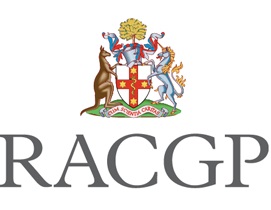COVID vaccines
Who will be eligible to receive the vaccine?
The COVID-19 vaccination will be free for:
* all Medicare-eligible Australians
* all visa-holders, excluding visa sub-classes 771 (Transit), 600 (Tourist stream), 651 (eVisitor) and 601 (Electronic Travel Authority).
While the Australian Government strongly supports immunisation it is not mandatory and individuals may choose not to vaccinate.
| Phase | Eligible populations
| | 1a | Quarantine and border workers
Frontline healthcare worker sub-groups for prioritisation
Aged care and disability care staff
Aged care and disability care residents
| | 1b | Elderly adults aged 80 years and over
Elderly adults aged 70-79 years
Other health care workers
Aboriginal and Torres Strait Islander people > 55
Younger adults with an underlying medical condition, including those with a disability
Critical and high risk workers including defence, police, fire, emergency services and meat processing
| | 2a | Adults aged 60-69 years
Adults aged 50-59 years
Aboriginal and Torres Strait Islander people 18- 54
Other critical and high risk workers
| | 2b | Balance of adult population
| | 3 | Under 18 year olds if recommended |
Vaccination locations
Vaccination locations will be established across metropolitan, regional, rural and remote Australia.
Around 30-50 locations will be established as ongoing 'Hospital Hubs' in urban and rural Australia. The sites of these are being finalised in conjunction with States and Territories. They will manage cold chain storage and Pfizer vaccine only and will provide a distribution hub for hospital, quarantine and border staff and residential aged care and disability residents and staff.
A further 1000+ locations will manage and distribute the AstraZeneca vaccine. These sites will include GP Respiratory clinics, general practices, state/territory vaccination clinics and Aboriginal Controlled Health Organisation clinics. These locations will be determined via an expression of interest process which will be open shortly.
Vaccine types
- Pfizer/BioNTech Vaccine
If the vaccine is proven to be safe and effective, and is approved for use, it will be available from early 2021. This vaccine is currently being rolled out across the United Kingdom (UK), european Union (EU) and and the United States of America (USA).
Administration: 2 doses will be required approximately one month apart
Side effects: In the trials, the vaccine was generally well-tolerated, and an independent data monitoring committee reported no serious safety concerns. The worst side effects were fatigue and headaches after the second dose. Around four per cent of people reported fatigue and two per cent a headache. Other side effects were pain at the injection site and myalgia.
With the roll out of the vaccine in the UK, there have been reports of two people with a history of allergies who have had serious adverse reactions to the vaccine. These are being investigated to determine causality.
Storage: For long-term storage (approximately six months) the vaccine must be kept at -70° C, which requires specialist cooling equipment. Pfizer has a distribution container that keeps the vaccine at that temperature for 10 days if unopened. These containers can be used for temporary storage in a vaccination facility for up to 30 days if they are replenished with dry ice every five days. Once thawed, the vaccine can be stored at 2°C to 8°C for up to five days.
General comments:
It is still unclear if the vaccine provides immunity for the disease as well as preventing infection.
In the UK, roll out to pregnant women and children is not included due to lack of testing in these groups.
Early data has been provided to the TGA and there be will be an application for provisional approval for use in Australia.
The 10 million doses secured by Australia will be manufactured in the United States of America, Belgium and Germany.
- University of Oxford/AstraZeneca vaccine
If the vaccine is proven to be safe and effective, and is approved for use, it will be available from early 2021.
Administration: Based on current trials it is likely two doses will be required approximately one month apart
Side effects: Side effects have been reported as minimal, however, there appears to be limited information on what these side effects are
Storage: The vaccine can be stored at temperatures between 2°C to 8°C
General comments:
Early trials suggest the vaccine may prevent asymptomatic infection, however, more research is required before this can be verified.
Australia has secured the delivery of 3.8 million doses in early 2021 and 30 million doses will be manufactured in Australia by the Commonwealth Serum Laboratories (CSL).
www.racgp.org.au
Index of general public information |















